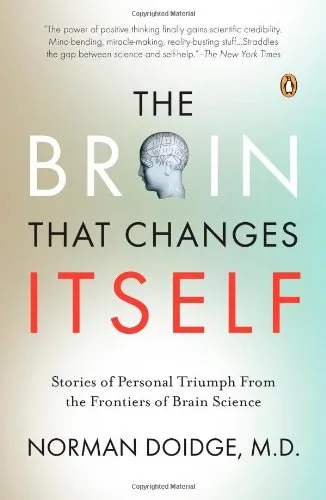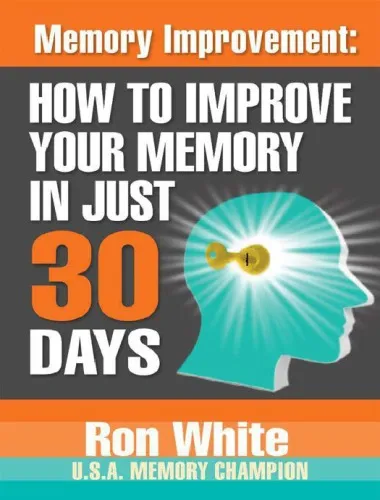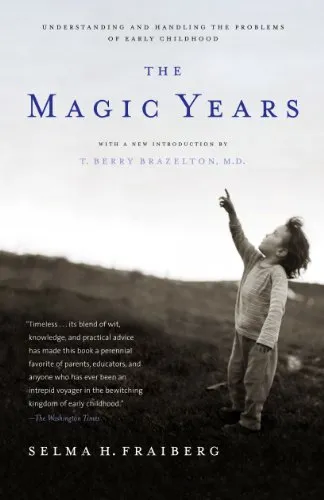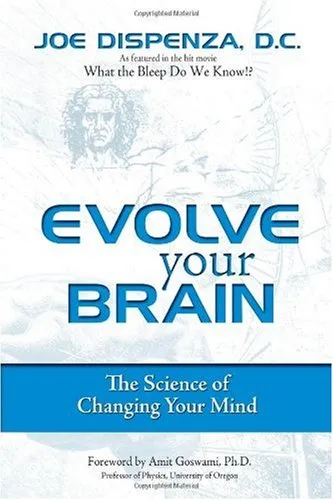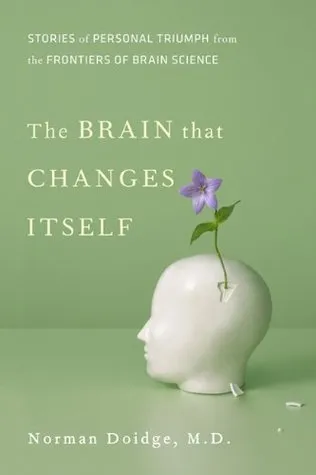The Brain That Changes Itself: Stories of Personal Triumph from the Frontiers of Brain Science (James H. Silberman Books)
4.5
Reviews from our users

You Can Ask your questions from this book's AI after Login
Each download or ask from book AI costs 2 points. To earn more free points, please visit the Points Guide Page and complete some valuable actions.Related Refrences:
Introduction
"The Brain That Changes Itself" by Norman Doidge is a groundbreaking work that has reshaped our understanding of the human brain. This book captures the fascinating world of neuroplasticity—the brain's ability to change and adapt in response to experience—as a vivid frontier in modern science. Through compelling narratives and insightful scientific explanations, the book introduces readers to the miraculous transformations made possible by this newfound knowledge, offering inspiration and hope to those dealing with brain injuries, psychological disorders, and learning challenges.
Detailed Summary of the Book
"The Brain That Changes Itself" unfolds its narrative through a series of personal triumphs intertwined with pioneering scientific exploration. Norman Doidge embarks on a journey to show how the brain, once considered a static organ, is in fact a dynamic entity capable of remarkable self-renewal and healing. The book is filled with stories of individuals who have experienced profound recovery and rejuvenation, defying the odds that traditional neurological science once deemed insurmountable.
Through various case studies, Dr. Doidge illustrates the diverse applications of neuroplasticity. From stroke victims relearning to move and speak, to individuals overcoming learning disabilities, and even cases of personal reinvention later in life—each account serves as a testament to the inherent resilience and adaptability of the human mind. The narrative style blends rigorous scientific insight with emotive storytelling, making it accessible and engaging for both experts and laypersons alike.
Alongside these stories, Doidge introduces readers to the scientists pushing the boundaries of brain research. Their groundbreaking work paves the way for new therapies and treatments, challenging the outdated notion that the adult brain is immutable after a certain age. Instead, he posits a transformative understanding that impacts how we approach brain health, with implications for education, mental health, and recovery therapies.
Key Takeaways
- The human brain is not fixed but is capable of significant change throughout a person’s life, known as neuroplasticity.
- Neuroplasticity opens new horizons for treatments of neurological disorders and can lead to recovery from injuries previously thought to be permanent.
- Proactive engagement in learning and challenging mental activities can enhance brain plasticity and overall cognitive function.
- Personal stories of recovery highlight practical applications of neuroplastic theories and their impact on individual lives.
- The book emphasizes the role of motivation, environment, and experience in shaping brain development and recovery.
Famous Quotes from the Book
"To be ourselves we must have ourselves – possess, if need be re-possess, our life stories."
"The brain is the most changeable organ of the body."
"Neurons that fire together wire together."
Why This Book Matters
"The Brain That Changes Itself" matters because it challenges and transforms our understanding of the human brain. Historically, the brain was seen as a rigid organ; however, through this book, we learn that it is capable of breath-taking changes and adaptations. This knowledge has profound implications for how we approach a myriad of problems from recovery after brain injuries, to the treatment of psychological disorders, and even improving learning processes throughout life.
The book serves as a spark of hope and possibility for practitioners and patients alike. The implications of neuroplasticity suggest that with the right interventions, support, and attitude, limitations imposed by certain neurological conditions can be dramatically altered. It calls for a societal shift in how we perceive abilities and disabilities, framed by a deeper understanding of the impressive capabilities within each of us.
Ultimately, Doidge’s work encourages a reevaluation of the potential residing in the human mind, urging us to embrace the possibility of change and growth at any age. Its impact on scientific and popular thought continues to inspire advancements in technology, policy, and health strategies worldwide.
Free Direct Download
You Can Download this book after Login
Accessing books through legal platforms and public libraries not only supports the rights of authors and publishers but also contributes to the sustainability of reading culture. Before downloading, please take a moment to consider these options.
Find this book on other platforms:
WorldCat helps you find books in libraries worldwide.
See ratings, reviews, and discussions on Goodreads.
Find and buy rare or used books on AbeBooks.
1302
بازدید4.5
امتیاز0
نظر98%
رضایتReviews:
4.5
Based on 0 users review
Questions & Answers
Ask questions about this book or help others by answering
No questions yet. Be the first to ask!
